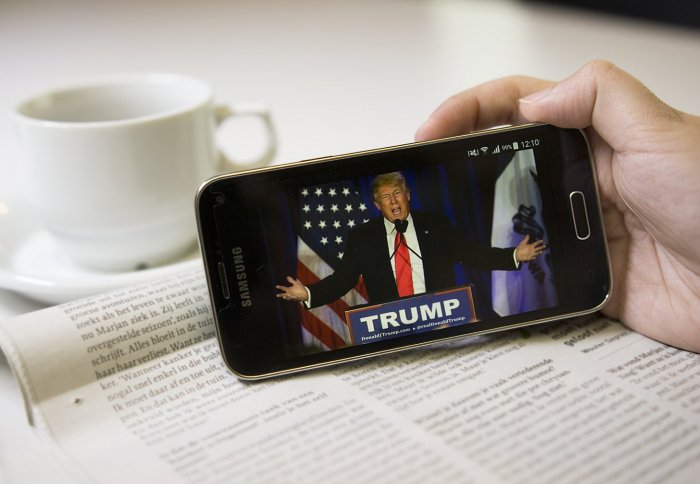

Twitter users who backed Donald Trump were more likely to reach out to others with opposing viewpoints, says an Imperial study.
In a study of 3.5 million tweets made in the 12 hours leading up to the election result, researchers from Imperial College Business School found that on Twitter, supporters of Mr Trump were more likely to engage with others of opposing political views to spread their message further.
Using data analysis techniques, researchers compared the volume and sentiment of tweets made by both Republican and Democrat supporters using the following hashtags: #MakeAmericaGreatAgain, #I’mwithher, #Election2016 and #Electionnight.
The researchers found that in the 12 hours before the polls closed there was a surge of 3,000 tweets using the hashtag #MakeAmericaGreatAgain (used by Mr Trump supporters) compared with only 1,400 for #I’mwithher (used by supporters of Hillary Clinton). The researchers conclude that Trump supporters made greater efforts to win over voters on social media than Clinton supporters, right up until the polls closed.
The researchers also found a higher level of Twitter conversation about the election in swing states such as Florida and Pennsylvania.

Map showing the volume of tweets about the election in various states across the USA on election night
This is the second time that the Business School has used the KPMG Data Observatory, based at Imperial’s Data Science Institute, to carry out research into people’s behaviours and methods of communicating in the run-up to a public vote. It follows a similar study conducted last year on the EU Referendum, which revealed how supporters of Brexit were more likely to engage with people of opposing viewpoints on Twitter than Remain supporters.
Dr Julio Amador, Research Associate at Imperial College Business School who led the research said: “We can draw parallels between the level of engagement on Twitter in terms of volume and sentiment of tweets coming from Democrat supporters, to the level of Twitter engagement put out by the Remain campaign on the day of the EU Referendum vote. In my view, these results show that supporters of Remain and Hillary Clinton could have done more to reach out to voters online.”
In a separate study for Imperial’s Data Science Institute, Dr Miguel Molina-Solana, Research Associate analysed the content of Mr Trump’s and Mrs Clinton’s speeches in the lead up to the US election to see which topics the presidential candidates touched on the most.
Using data analysis, the researchers examined transcripts of both Mr Trump’s and Mrs Clinton’s speeches, breaking the content down into a matrix featuring key words and topics to understand which topics each candidate spoke more about.
The results show that Mr Trump’s speeches were more likely to focus on topics such as leisure, family, religion, music, ‘positive feelings’ and America. In contrast Mrs Clinton’s speeches were more likely to focus on law and order and the economy.
Article text (excluding photos or graphics) available under an Attribution-NonCommercial-ShareAlike Creative Commons license.
Photos and graphics subject to third party copyright used with permission or © Imperial College London.
Reporter
Laura Singleton
Communications Division


